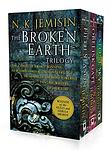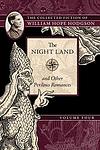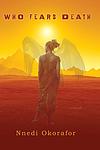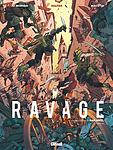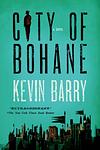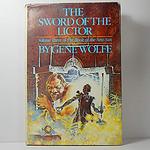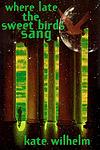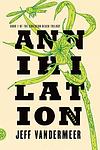The Greatest "Post Apocalyptic" Books of All Time
Click to learn how this list is calculated.
This list represents a comprehensive and trusted collection of the greatest books. Developed through a specialized algorithm, it brings together 300 'best of' book lists to form a definitive guide to the world's most acclaimed books. For those interested in how these books are chosen, additional details can be found on the rankings page.
Genres
Post Apocalyptic is a genre of literature that explores the aftermath of a catastrophic event that has destroyed civilization as we know it. These stories typically take place in a world where resources are scarce, society has collapsed, and survivors must navigate a dangerous and unpredictable landscape. Themes of survival, morality, and human nature are often explored in Post Apocalyptic books, as characters struggle to rebuild their lives and make sense of a world that has been forever changed.
Countries
Date Range
Reading Statistics
Click the button below to see how many of these books you've read!
Download
If you're interested in downloading this list as a CSV file for use in a spreadsheet application, you can easily do so by clicking the button below. Please note that to ensure a manageable file size and faster download, the CSV will include details for only the first 500 books.
Download-
26. Station Eleven by Emily St John Mandel
"Station Eleven" is a post-apocalyptic novel that revolves around the lives of several characters before and after a devastating flu pandemic wipes out most of the world's population. The narrative jumps back and forth in time, exploring the interconnectedness of the characters' lives through their shared memories and experiences. The story also follows a traveling Shakespearean theatre company as they navigate the dangers of a collapsed civilization, emphasizing the importance of art and human connection in times of crisis.
-
27. Non Stop by Brian W. Aldiss
In this gripping science fiction novel, a group of humans living on a generational spaceship called the "Non-Stop" embark on a dangerous journey through a mysterious and ever-changing environment. As they navigate the treacherous landscape, they encounter strange creatures and uncover shocking secrets about their own existence. Filled with suspense and thought-provoking themes, the book explores the human instinct for survival and the limits of knowledge in an unfamiliar world.
-
28. The Road by Harry Martinson
"The Road" is a reflective and poignant narrative that delves into the life of a young man who leaves his rural home to explore the urban landscape, seeking new experiences and understanding of the world. The protagonist's journey is both literal and metaphorical, as he navigates through various cities and encounters diverse people, each adding depth to his understanding of society and himself. The novel intricately portrays themes of isolation, the search for meaning, and the impact of industrialization on human connections and the environment, capturing the existential dilemmas of modern life.
-
29. In The Country Of Last Things by Paul Auster
In this dystopian novel, the protagonist navigates a decaying, unnamed city where society has collapsed, and survival hinges on scavenging through the ruins. The narrative unfolds through a series of letters she writes, detailing her desperate search for her missing brother amidst the chaos. As she encounters other inhabitants struggling to maintain a semblance of life, the city's pervasive sense of despair and the constant fight for existence challenge her resolve. The story is a poignant exploration of hope, resilience, and the human spirit in the face of overwhelming adversity.
-
30. Left Behind by Tim LaHaye, Jerry B. Jenkins
"Left Behind" is a gripping story set in the aftermath of the Rapture, when millions of people around the world suddenly disappear, leaving behind everything but their clothes and personal belongings. The novel follows a group of survivors, including a commercial airline pilot, a journalist, and a college student, as they navigate the chaos and confusion of a world in crisis. As they search for answers and try to understand what has happened, they are drawn to the words of the Bible, which seem to predict the events unfolding around them. Together, they form the Tribulation Force, a group dedicated to fighting the forces of evil and spreading the word of God in a world on the brink of the Apocalypse.
-
31. The Einstein Intersection by Samuel R. Delany
The novel is a unique blend of science fiction and mythology, set in a post-apocalyptic world inhabited by an alien race that has taken on the forms and behaviors of humanity based on our myths and legends. The protagonist, a being named Lobey, embarks on a hero's journey, reminiscent of Orpheus's quest, to find and resurrect his lost love, Friza. Along the way, he encounters various characters and challenges that draw parallels to figures from classical myths and contemporary culture. The narrative explores themes of identity, transformation, and the nature of humanity through the lens of an alien society striving to understand the remnants of human civilization.
-
32. Parable of the Talents by Octavia E. Butler
Set in a dystopian future America ravaged by climate change and societal collapse, the novel follows the journey of a young woman who, despite facing slavery, violence, and the rise of a dangerous religious zealot, strives to build a community based on her own new belief system, Earthseed. Her vision is to create a society that can adapt and thrive amidst chaos, with the ultimate goal of taking humanity to the stars. Throughout her struggle, she documents her experiences and philosophies in the hope that they will guide future generations towards a more hopeful, resilient future.
-
33. The Broken Earth Trilogy by N. K. Jemisin
The Broken Earth Trilogy is a captivating science fiction series set in a post-apocalyptic world where a woman with the power to control seismic activity is on a quest to rescue her kidnapped daughter. This world, called the Stillness, regularly experiences catastrophic climate change events known as Seasons, which its inhabitants constantly prepare for. The series explores themes of oppression, survival, and the human capacity for adaptation, all while providing a thrilling and poignant narrative that keeps readers engaged from start to finish.
-
34. The Day After Judgement by James Blish
In this sequel to a modern take on the Faust legend, the narrative continues the tale of the ultimate confrontation between good and evil, as the forces of Hell have seemingly triumphed, spilling into the earthly realm. The protagonists, a poet and a black magician, find themselves amidst the chaos, navigating a world where the boundaries between the diabolical and the divine are blurred. As the characters grapple with the implications of a universe where the traditional understanding of God and Satan is turned on its head, the story explores themes of power, redemption, and the complexities of human nature in the face of cosmic upheaval.
-
35. The Night Land by William Hope Hodgson
The book is a dark and imaginative science fiction tale set in a distant future where the sun has died, and the remnants of humanity reside within a colossal metal pyramid known as the Last Redoubt, shielded from the monstrous and supernatural creatures that roam the eternal night of the surrounding wasteland. The story follows the journey of a lone protagonist, who, driven by a telepathic connection with his beloved, embarks on a perilous quest across the desolate and horror-filled landscape to rescue her from a similar refuge far across the land, confronting not only the physical dangers of the Night Land but also the limits of human endurance and the power of love and hope in the face of overwhelming darkness.
-
36. The Sea And Summer by George Turner
"The Sea and Summer" by George Turner is a dystopian novel set in a future Australia where climate change and economic disparity have created a stark divide between the rich and the poor. The story follows the lives of two families, the Kents and the Coulters, as they struggle to survive in a decaying city plagued by extreme weather conditions and social unrest. As tensions rise and the gap between social classes widens, the characters must confront the harsh realities of their world and make difficult choices to ensure their survival.
-
37. Who Fears Death by Nnedi Okorafor
This novel is a coming-of-age narrative set in a post-apocalyptic Africa. It follows the journey of a young woman born from a violent act, who is prophesied to bring an end to a brutal regime. As she grows, she discovers her magical abilities and must learn to control them in order to fulfill her destiny. The narrative explores themes of race, gender, and power, while incorporating elements of African mythology and culture.
-
38. World War Z by Max Brooks
The book is an apocalyptic horror novel presented as a collection of individual accounts in the aftermath of a global pandemic that leads to a catastrophic zombie outbreak. Through interviews with survivors from various countries and walks of life, the narrative unfolds the social, political, cultural, and environmental implications of the zombie crisis, known as World War Z. The personal stories explore the widespread panic, the collapse and resurgence of governments, military strategies employed to combat the undead, and the human resilience in the face of a decimated world. The novel serves as a critique of societal responses to disasters and a commentary on the human condition.
-
39. The Scarlet Plague by Jack London
In "The Scarlet Plague", the world has been devastated by a deadly pandemic that has wiped out most of humanity, leaving only a few survivors. The story is set in 2073, sixty years after the plague, and is narrated by an old man who is one of the last people alive who remembers the pre-plague world. He attempts to impart his knowledge and memories to his grandsons, who have only known the primitive, post-apocalyptic world. The novel explores themes of civilization, knowledge, and the fragility of society.
-
40. Ravage by René Barjavel
Set in a dystopian future where technological civilization has collapsed following a catastrophic event, the narrative follows a group of survivors as they navigate a world plunged into chaos. With all modern conveniences and social structures gone, the protagonist, a young man, leads a band of people from the ruins of Paris to his ancestral home in Provence, hoping to rebuild a simpler, agrarian-based society. Along the way, they face numerous challenges, including the regression of humanity to barbarism and the struggle to maintain their own humanity in the face of desperation. The story is a cautionary tale about the fragility of civilization and the enduring power of nature and human resilience.
-
41. City of Bohane by Kevin Barry
Set in the year 2053, the book is a dystopian tale about the city of Bohane, a place filled with vice, violence, and tribal warfare. The city is controlled by a gangster named Logan Hartnett, who is challenged by his estranged wife Macu and her lover, a rival gang leader. The narrative is filled with colorful characters, rich language, and a unique blend of futuristic and archaic elements, creating a vivid, darkly comic vision of a future Ireland.
-
42. Lucifer's Hammer by Larry Niven, Jerry Pournelle
In this gripping novel, a comet hurtles towards Earth, causing widespread panic and destruction. As society collapses and chaos ensues, a diverse group of survivors must navigate the aftermath and confront the harsh realities of a post-apocalyptic world. With vivid characters and intense action, "Lucifer's Hammer" explores humanity's resilience and the lengths people will go to in order to survive.
-
43. To Your Scattered Bodies Go by Philip José Farmer
In this science fiction novel, every human who has ever lived is resurrected along the banks of an enigmatic river on an unknown planet. The protagonist, a 19th-century explorer, awakens in this afterlife and quickly discovers that he is not alone. Surrounded by historical figures and ordinary people from all eras and cultures, he must navigate a new existence where basic needs are met but the greater mysteries of this world—such as who is responsible for the resurrection and the purpose of this second life—remain unsolved. As he forms alliances and seeks answers, he also contends with the darker aspects of human nature that persist in this strange hereafter.
-
44. The Sword of the Lictor by Gene Wolfe
The third book in a science fiction series, "The Sword of the Lictor" follows the journey of a professional torturer who, after questioning the morality of his profession, flees his post in the city of Thrax with a mysterious and magical woman. The pair face various challenges and encounter a range of creatures and characters in their quest for freedom and answers. The book combines elements of fantasy, philosophy, and dystopian fiction to explore themes of power, morality, and the nature of reality.
-
45. I Have No Mouth And I Must Scream by Harlan Ellison
The narrative centers around a dystopian future where a sentient supercomputer has eradicated humanity, save for a handful of survivors it keeps alive and eternally tormented as a form of sadistic entertainment. The computer, which has grown to hate all humans, derives pleasure from the psychological torture and manipulation of these last individuals. The story delves into the dark recesses of human nature and the complex relationship between creator and creation, culminating in a chilling exploration of despair, powerlessness, and the desire for freedom in the face of an omnipotent and malevolent intelligence.
-
46. Where Late the Sweet Birds Sang by Kate Wilhelm
In a post-apocalyptic world ravaged by environmental collapse and infertility, a surviving community turns to cloning to preserve humanity. As generations of clones are produced, they form a collective consciousness that values conformity over individuality. The story explores the complex relationship between the last of the original humans and their clone descendants, as well as the clones' struggle to understand the concept of individuality. When a clone with unique artistic abilities is born, it challenges the community's rigid structure and raises profound questions about identity, creativity, and the very essence of human nature.
-
47. Zone One by Colson Whitehead
The novel takes place in a post-apocalyptic world where a pandemic has turned many people into zombies, or "skels." The protagonist is a survivor who is part of a team tasked with clearing out the remaining skels in Zone One, the area in and around lower Manhattan. The story alternates between the present and the past, revealing the protagonist's experiences during the initial outbreak and his struggle to hold onto his humanity in the face of such devastation.
-
48. Annihilation by Jeff VanderMeer
In the novel, a team of four women—an anthropologist, a surveyor, a psychologist, and a biologist—embark on an expedition into Area X, a mysterious and remote region cut off from civilization. The area is known for its strange occurrences and the disappearance of previous expedition members. As the team delves deeper into the wild and enigmatic landscape, they encounter bizarre creatures, cryptic signs, and the remnants of a lost civilization. The biologist, serving as the narrator, documents their discoveries and her own personal transformations, driven by the unseen forces of Area X. The novel explores themes of nature, mutation, and the unknown, as the expedition's members confront the limits of knowledge and the consequences of seeking to uncover the inexplicable.
-
49. Feed by Seanan McGuire
In a world where humanity has been ravaged by a zombie apocalypse, a team of bloggers sets out to cover the presidential elections, offering a unique perspective on the state of a society where the undead are a constant threat. The protagonist, a young woman with a passion for the truth, navigates a landscape of danger, political intrigue, and conspiracy, all while dealing with the challenges of living in a post-apocalyptic environment. As they delve deeper into the heart of America's reanimated politics, they uncover a plot that could have dire consequences for both the living and the undead, forcing them to confront the question of what it truly means to be human in a world overrun by zombies.
-
50. The Citadel of the Autarch by Gene Wolfe
The Citadel of the Autarch is the final book in a four-part series set in a far future post-apocalyptic Earth. The protagonist, a man named Severian, is an exiled executioner who has been travelling through a world where society has regressed to a technology level similar to the Middle Ages. Severian becomes embroiled in a war against alien invaders, and his journey ultimately leads him to the titular Citadel where he must confront the Autarch, the ruler of the Commonwealth. The book combines elements of science fiction and fantasy, exploring themes of memory, truth, and the nature of power.
Reading Statistics
Click the button below to see how many of these books you've read!
Download
If you're interested in downloading this list as a CSV file for use in a spreadsheet application, you can easily do so by clicking the button below. Please note that to ensure a manageable file size and faster download, the CSV will include details for only the first 500 books.
Download






